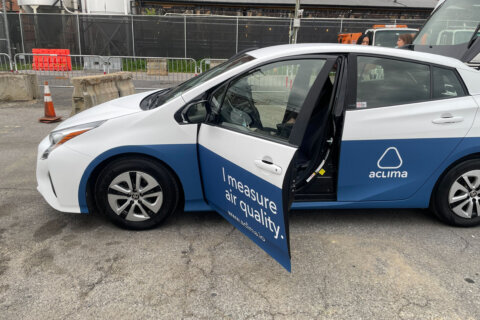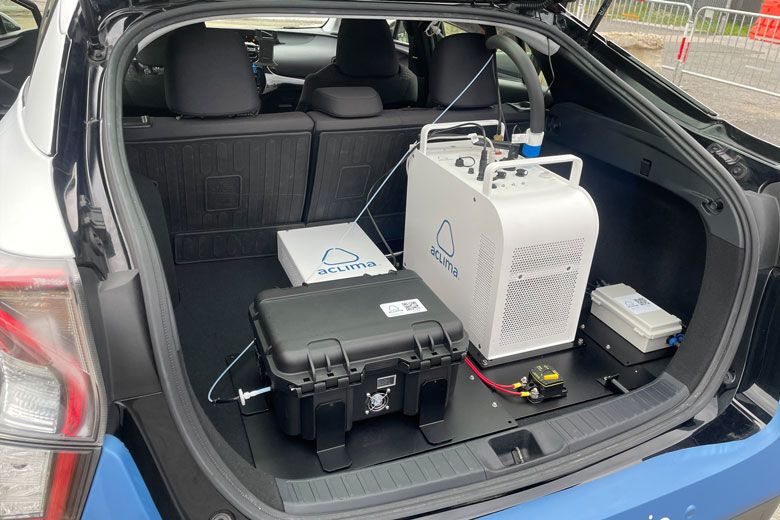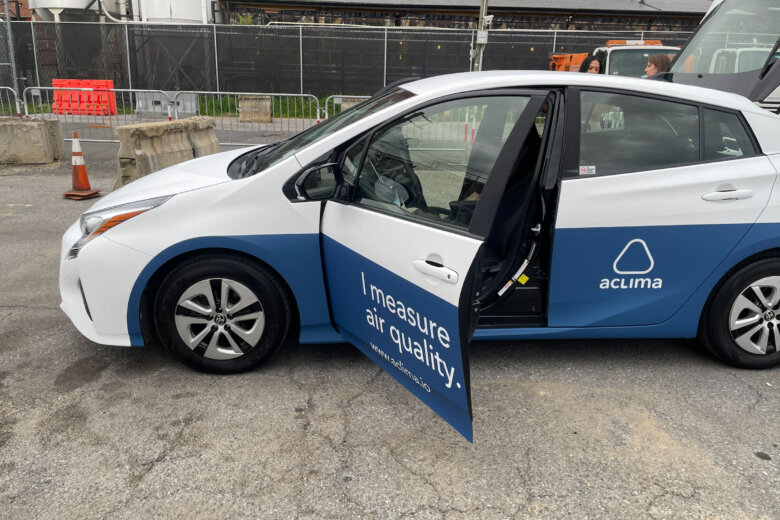
The District has a new plan to take an round-the-clock, block-by-block check of air quality, starting in three mostly-Black neighborhoods.
Neighbors in the Ivy City/Brentwood, Buzzard Point and Mayfair communities will soon see what looks like a ride-hailing vehicle cruising through their streets. But instead of picking up passengers, fine-tuned sensors on the vehicles will pick up signs of air pollution.
The data collected over the two-week pilot program will be used to track where the District’s most polluted air flows, said Joseph Jakuta, a branch chief at the D.C.’s Department of Energy and Environment.
“I’ve been describing this as: We’re going in for our initial check-up of what’s going on in these communities,” he said.
The air-quality vehicles are created and owned by Aclima, a climate technology company. Its all-electric fleet will cruise around day and night, using an algorithm that picks up pollution, follows it and records it.

Jakuta said the three neighborhoods were selected because of a long past fraught with air pollution and discrimination issues.
“There’s been a history of redlining and putting industrial facilities in communities of color and running highways through them,” he said. “That’s why the pilot was set up to look at these areas first, because if we’re going to find any problems that are persisting, I think it’s going to be in these communities.”
There is another reason why the city is teaming up with Aclima to track air quality data. D.C. has few federal pollution sensors, which has led to a gap in the data on where the most air pollution lingers, Jakuta said.
“We do have a very high quality federal monitoring program. But it only collects data in certain parts of the city,” he said. “So, if there are particular hot spots, we don’t know.”
Once all of the information is collected, the department will unveil a report for residents. But the move will most likely lead to purchasing low-cost pollution sensors, which range between $500 and $10,000 each, and will be strategically placed throughout the District for more information, he said.
“We need to look at if there’s a particular facility or source that’s a problem,” Jakuta said.








